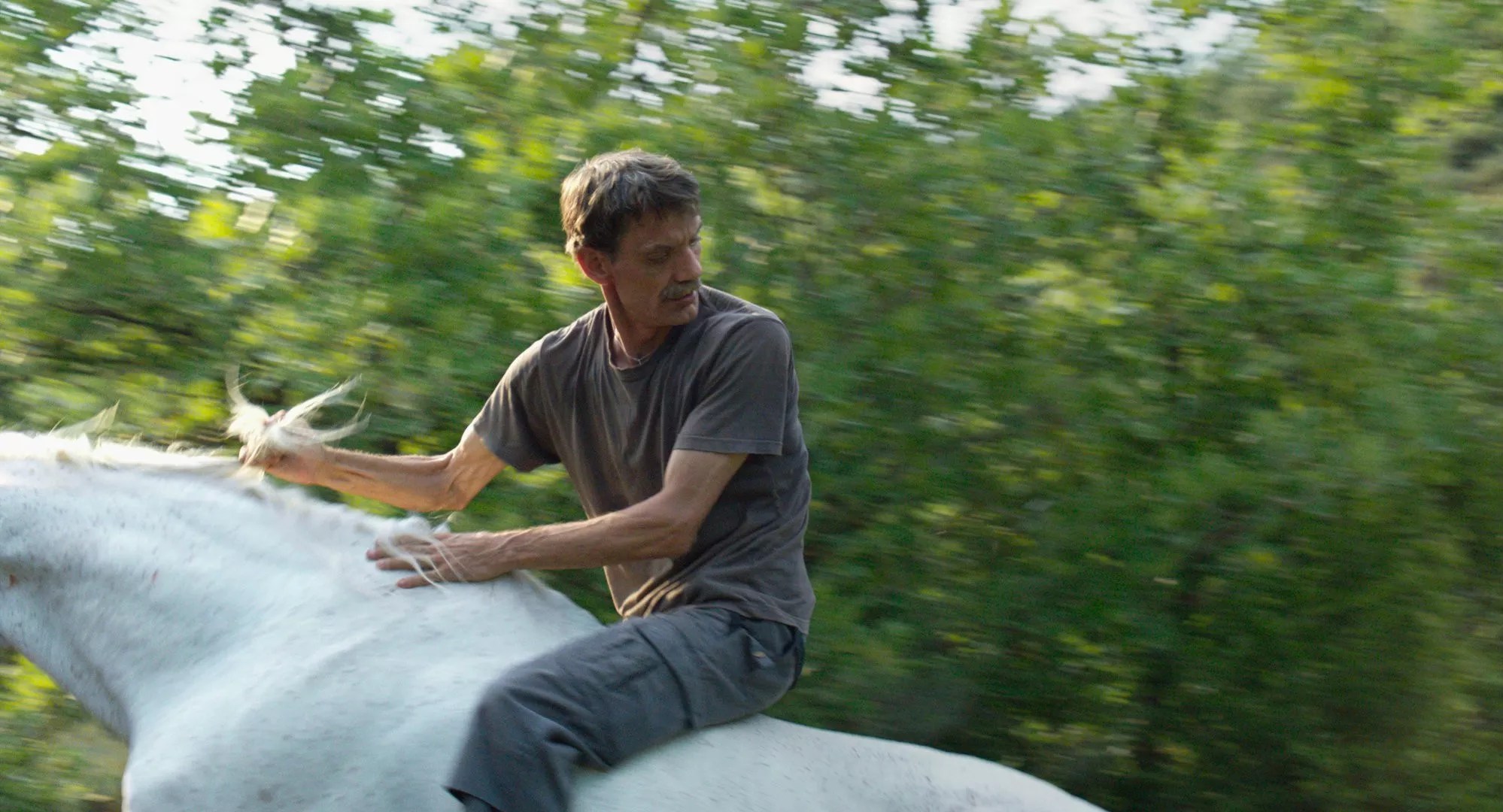
Courtesy of Cinema Guild

Audio By Carbonatix
The chief suspense, at first, in Western, Valeska Grisebach’s third feature, lies in classification: What kind of western will this tense but languid story of a four-man German construction team working on a hydropower project in the forests of Bulgaria resolve itself into? Besides its arresting landscape photography and its interest in the fate of a trusty white steed, Grisebach’s film – her first since 2006’s Longing – lingers over many of the classical elements of the genre. Here’s a band of outsiders turning up at a backwoods town, running afoul of the close-knit villagers, ham-fistedly attempting to win the favors of local women. Here’s an outsider to the outsiders, caught between the two factions. Here are standoffs over beers, squabbles about well water and a communal suspicion about outside innovation. Here’s one of the chief questions facing the characters in many frontier dramas: Do the moneyed interests showing up in the name of progress represent an end to the existing ways?
Grisebach is a restless thinker and filmmaker. Nothing in the movie is derivative of westerns, but many of its conflicts and particulars echo them – and the resolutions are all her own. Grisebach’s men (played by non-professional actors) tend toward the taciturn and affronted, to
He doesn’t drown her, of course. Western is not that kind of western – nobody behaving villainously here understands that they are villains. But that dunking will inform every interaction between workers and townsfolk to come. Grisebach surveys her incidents (river work, bar nights, outdoor parties, horseback reveries, confrontations between townies and outsiders) from various vantage points, honoring the perspectives of all parties. Caught in the middle, eventually, is Meinhard (Meinhard Neumann), lanky and quiet and open to suggestions, a German new to the crew and intrigued by Bulgarian village life. He attempts to serve as a sort of ambassador but soon finds himself feeling a connection to the locals – and wanting more. The cast is made up of the kind of men the cast is playing; Grisebach’s construction workers are real workers, and their keep-to-themselves diffidence proves entirely convincing. Neumann, as Meinhard, exhibits a greater emotional range, wringing tears from himself during one potent drunken monologue, but he, too, spends much of the film in silence, observing, his character uncertain of his place. One of the film’s great ironies: He seems to communicate more effectively with the villagers, with whom he shares no language, more than his coworkers, with whom he does.
Episodic at first, its scenes often quick sketches, Western offers, by its end, a complex study of conflicting impulses, strained loyalties, masculine prickliness, knee-jerk xenophobia and the go-nowhere resolutions of violence. The movies it sometimes resembles would build to a climactic showdown, of course, but Grisebach ultimately is concerned with people rather than the demands of
Western. Starring Meinhard Neumann, Reinhardt Wetrek, Waldemar Zang, and